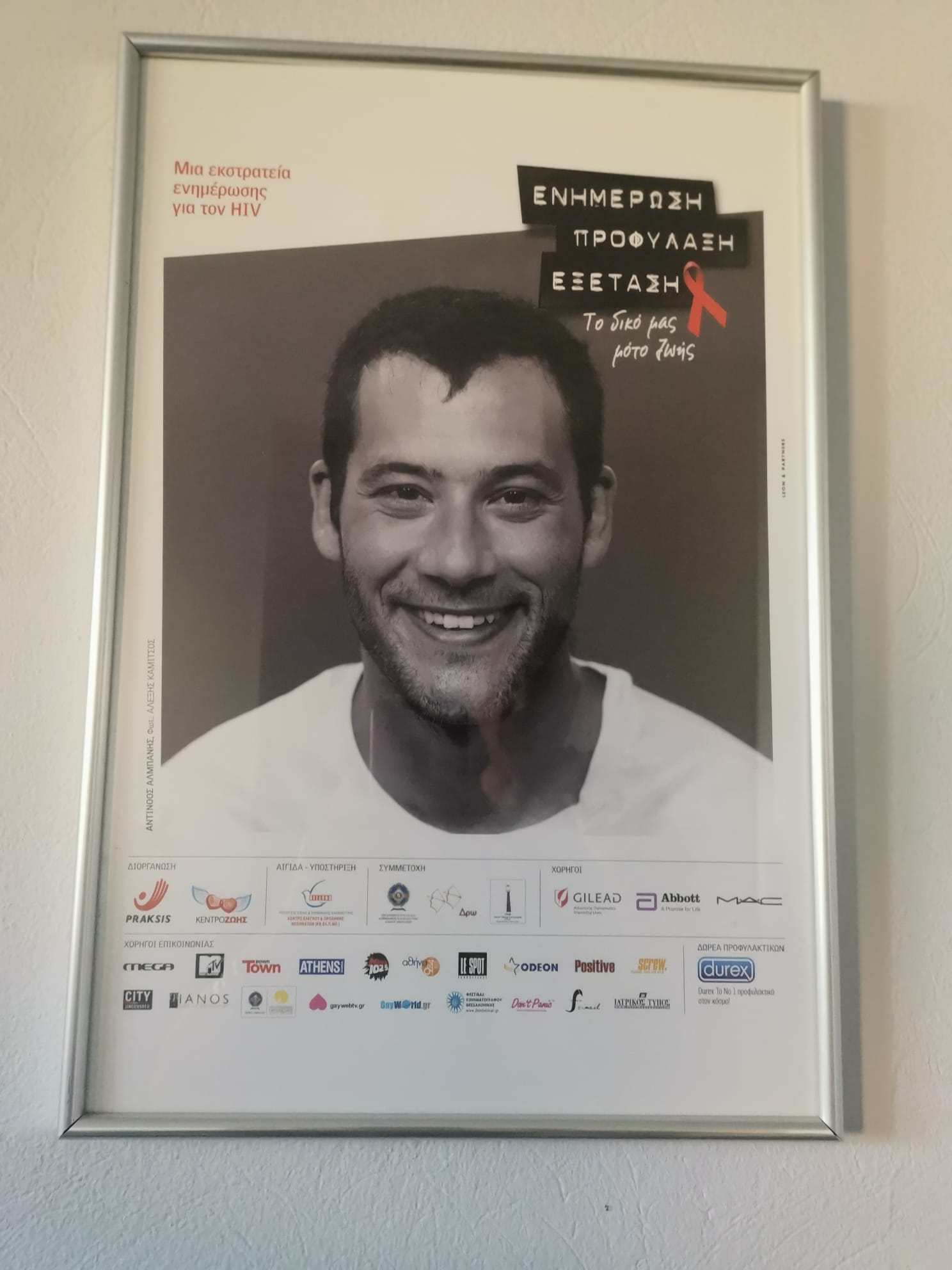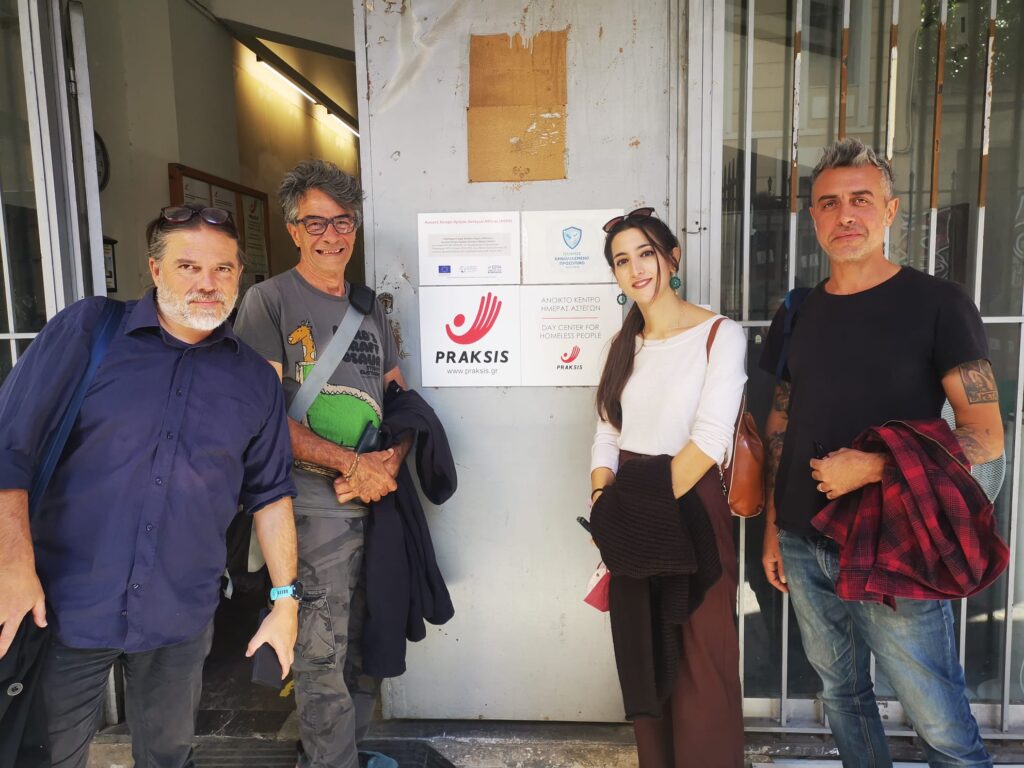
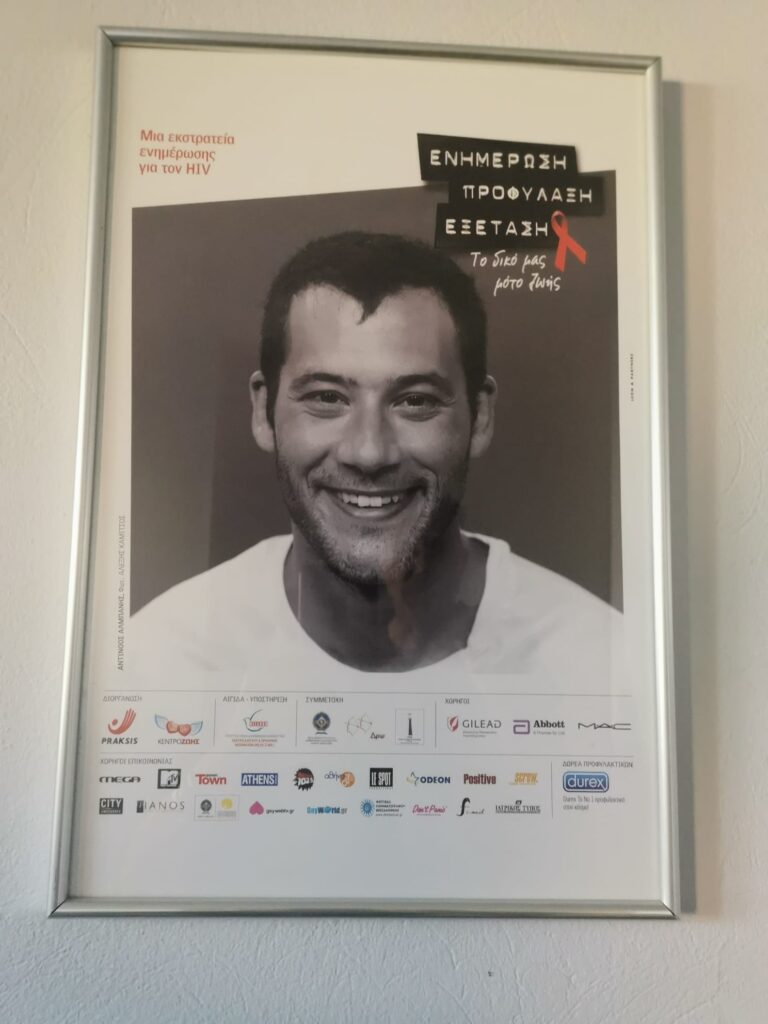
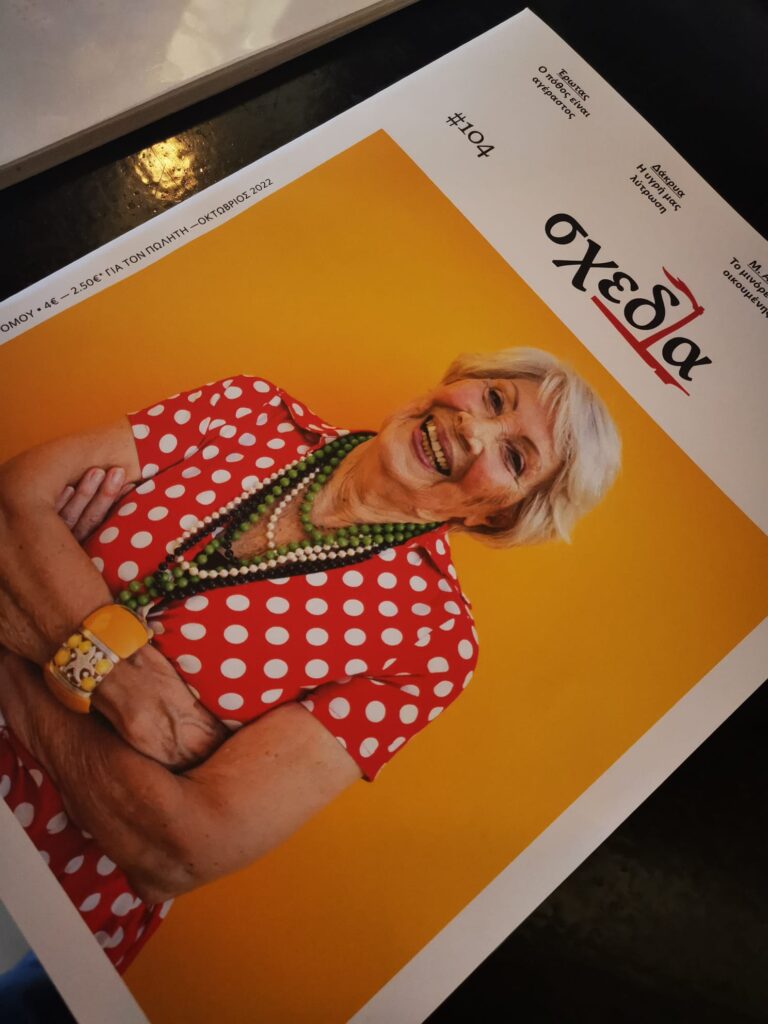
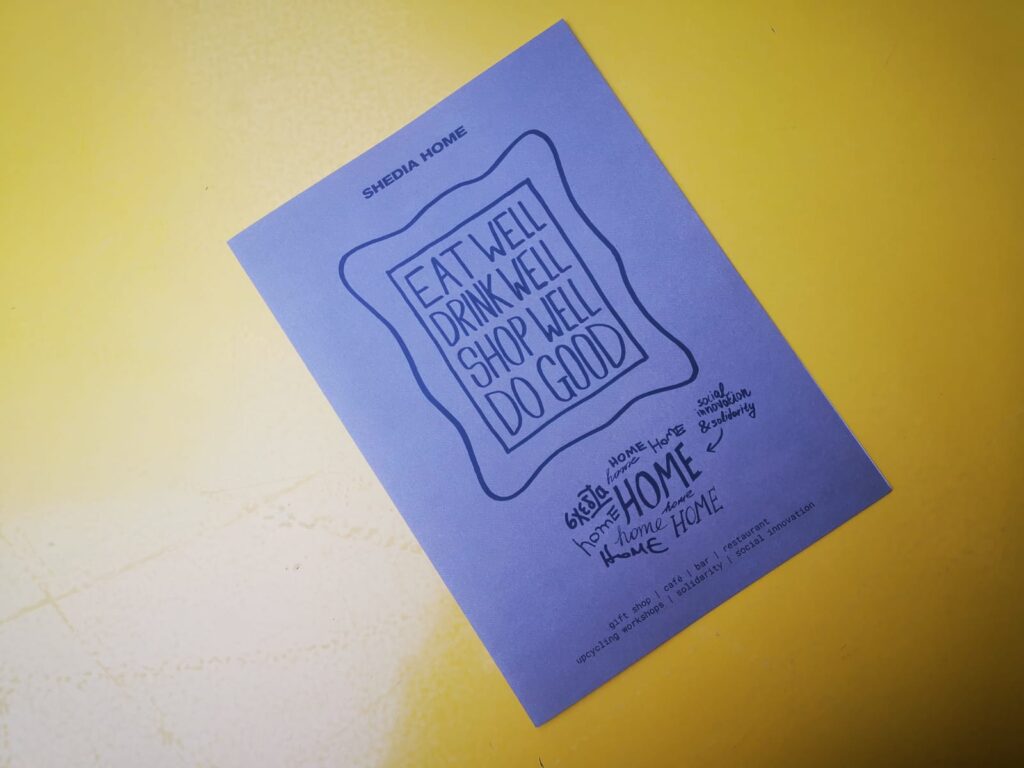
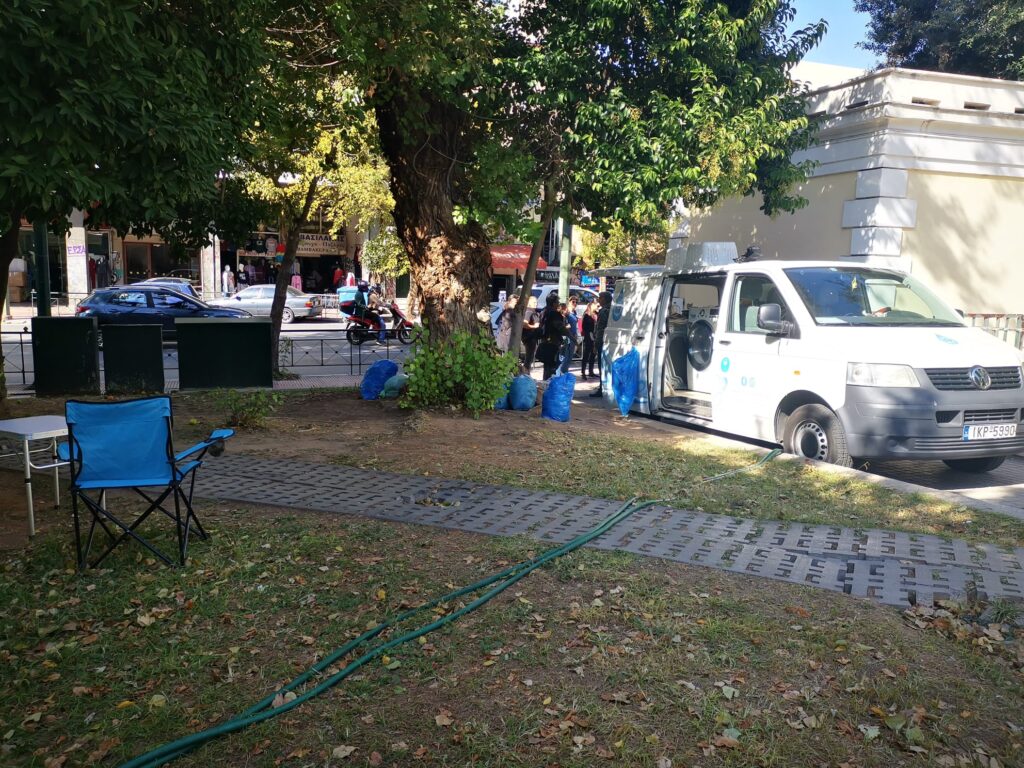
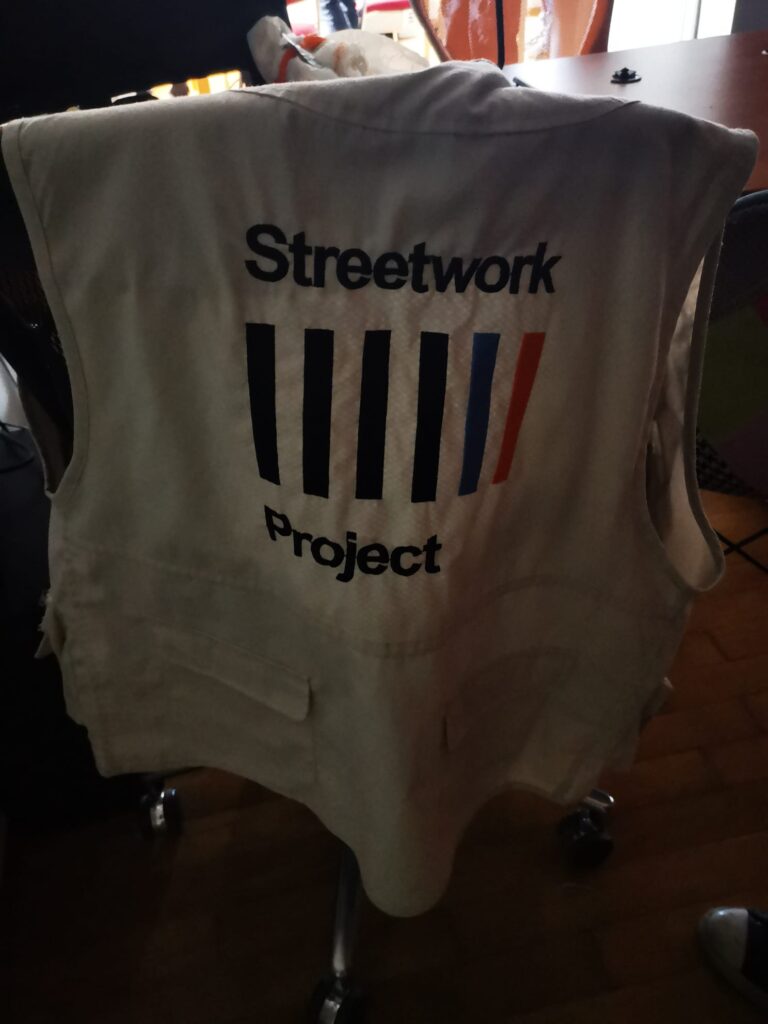






Social innovation, accessibility, proximity: these are the keywords of the international exchange week between the partners of the Erasmus+ Proximity Health project.
Guests of the exchange PRAKSIS, an NGO founded in 2004 based in Athens, which intervenes in various Greek cities by carrying out free projects and services in support of vulnerable social groups regardless of gender identity, sexual orientation, origin, ethnicity, political or religious belief.
An intense week that alternated moments of debate and comparison between the participants in visits to health centers in sensitive neighborhoods of Athens, with social innovation projects such as Schedia Home which, through the creation of a monthly magazine, a bar and an atelier of creation of design objects, has allowed a growing number of homeless people to find a job and a home.
A high number of discussions were held on all different angles of the homelessness, starting with PRAKSIS interventions on the homeless population and the conditions of those experiencing social and economic exclusion. What and how the civil society as well as the public sector are addressing to and work with homelessness issues.
Dedicated information was provided on specific projects and policy in Greece and also information on topics linked with dedicated programs, such as work promotion programs and harm reduction programs. Moreover, the discussions continued with a presentation from the point of the academia on disaster medicine and the assistance offered in crisis situations and in need of immediate intervention. Information was provided on the medical issues of homelessness and ways to cope and the main causes of it.
In particular, a visit was made to an organization dedicated to supporting people living with HIV where a discussion was held on its activities on HIV/AIDS prevention and response issues. Then, a programme was presented through which meals are provided to students in need whose parents cannot cover their family’s meals and to the most “poor” families. This was followed by a discussion on the comparison of similar practices in other countries. Afterwards, a visit and tour of the polyclinics of a non-governmental organization was made and the partnership was informed about how they provide free examinations and the profile of the people they serve.
The blended mobility group visit also the PRAKSIS Community Center, the PRAKSIS Day Center in Athens and PRAKSIS Address (structure that provides free clothes). A tour of the premises was given and the services provided were explained (social service, medical services, provision of clothes and hygiene items). This was followed by a discussion on the problems of homeless people. A street worker took part in this discussion and gave detailed information on substance use.
We thank PRAKIS and all the operators who participated in the exchange together with us, for having contributed together to make this experience so intense and stimulating!
Social innovation, accessibility, proximity: these are the keywords of the international exchange week between the partners of the Erasmus+ Proximity Health project.
Guests of the exchange PRAKSIS, an NGO founded in 2004 based in Athens, which intervenes in various Greek cities by carrying out free projects and services in support of vulnerable social groups regardless of gender identity, sexual orientation, origin, ethnicity, political or religious belief.
An intense week that alternated moments of debate and comparison between the participants in visits to health centers in sensitive neighborhoods of Athens, with social innovation projects such as Schedia Home which, through the creation of a monthly magazine, a bar and an atelier of creation of design objects, has allowed a growing number of homeless people to find a job and a home.
A high number of discussions were held on all different angles of the homelessness, starting with PRAKSIS interventions on the homeless population and the conditions of those experiencing social and economic exclusion. What and how the civil society as well as the public sector are addressing to and work with homelessness issues.
Dedicated information was provided on specific projects and policy in Greece and also information on topics linked with dedicated programs, such as work promotion programs and harm reduction programs. Moreover, the discussions continued with a presentation from the point of the academia on disaster medicine and the assistance offered in crisis situations and in need of immediate intervention. Information was provided on the medical issues of homelessness and ways to cope and the main causes of it.
In particular, a visit was made to an organization dedicated to supporting people living with HIV where a discussion was held on its activities on HIV/AIDS prevention and response issues. Then, a programme was presented through which meals are provided to students in need whose parents cannot cover their family’s meals and to the most “poor” families. This was followed by a discussion on the comparison of similar practices in other countries. Afterwards, a visit and tour of the polyclinics of a non-governmental organization was made and the partnership was informed about how they provide free examinations and the profile of the people they serve.
The blended mobility group visit also the PRAKSIS Community Center, the PRAKSIS Day Center in Athens and PRAKSIS Address (structure that provides free clothes). A tour of the premises was given and the services provided were explained (social service, medical services, provision of clothes and hygiene items). This was followed by a discussion on the problems of homeless people. A street worker took part in this discussion and gave detailed information on substance use.
We thank PRAKIS and all the operators who participated in the exchange together with us, for having contributed together to make this experience so intense and stimulating!
